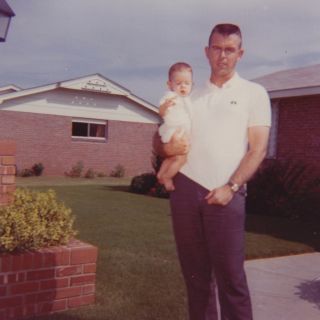Adverse Childhood Experiences
Are Adult Survivors of Child Abuse Ever Fully Healed?
Personal Perspective: Life events can often bring past issues into the present.
Posted March 22, 2024 Reviewed by Davia Sills
Key points
- When a major life event occurs, adult survivors of child abuse must often run interference for their abusers.
- There's no shame in trying to explain an extended family's dysfunction to others who have no concept of such.
- By not hiding or being ashamed of past abuse, survivors make it OK for other survivors to do the same.
- Being confronted by the past can leave one more resilient and even more committed to living one's best life.
As an adult survivor of child abuse, I’m not sure I’ll ever be fully healed of the horrific experiences I was raised in. Even as someone who lives life with a grateful heart for friends, relationships, and business-related successes, there are times I come face-to-face with circumstances that instantly put me in touch with the inner child who was neglected, beaten, and left alone at a very young age for days on end—not sure if my sister and I could endure the circumstances; at one point even calling the police for help and having them refuse to investigate. Like me, many survivors of abuse react to things differently, live a little differently, and must handle life’s watershed moments differently.

Recently, I was informed that my father had passed away. Due to dementia issues and his residing in an assisted living facility overseas (where he had been married to his third wife), he and I didn’t have much of a relationship. This wasn’t by choice. I decided long ago that I would entertain polite, if curt, exchanges with my birth parents for my own mental well-being. Not for their sake. Unlike some abusers, my parents never admitted to or even saw the error of their ways. My mother went to her deathbed claiming my sister and I were both adopted. Even her obituary stated as much—and as a matter of record, we were not.
In hindsight, I surmise that my mother was very mentally ill. This calls into question why our dad and other relatives would leave my sister and me alone in her care. So, my father’s passing is bittersweet. It’s not something I celebrate. I do mourn for him. I tell myself he was doing his best, even at his worst.
And yet, his passing brings up all kinds of issues. His will. His burial. His obituary. In most cases, there’s a methodology for handling life’s milestones. But in broken families, there is not. And when you insert other characters (second husbands, second and third wives) into the mix, things get even more complicated. Suddenly, the discarded child wonders if they’ll even be invited to the funeral, much less consulted regarding the last will and testament.
Explaining this dysfunction even to people who know and love me and my sister is a chore. We can see their facial expressions change from consolation to confusion. Why aren’t we more sad? Why wouldn’t we know if our dad had a will? Or what his wishes were regarding how he’d like to be laid to rest? And why haven’t we spoken to our parents in years? The looks from others then usually turn suspicious in nature—as if my sister and I are somehow the culprits or, at the very least, coconspirators in our family’s web of dysfunction.
And so, when a parent passes, or another major life event occurs (whether it’s an occasion that inspires happiness or grief), adult children of dysfunctional families must not only run interference for themselves but also their abusers. It’s a tragic hangover from a life that, for many, would be too terrifying even to hear the details of. But I’ve learned that by not hiding these issues in the shadows—even if we sometimes confuse the curious—we make it OK for others who’ve lived through similar hardships.
It turns out the “normal” can also be abnormal. And for those of us doing the best we can to stop the legacy of abuse in our family trees, being true to ourselves—mental and/or physical scars from the past and all—is the best gift we can give ourselves and the best kind of behavior we can model for others.
There’s no shame in surviving. No matter how that’s defined for anyone reading this. Sometimes, waking up, getting dressed, and showing up for the new day takes a monumental effort for the adult survivor of child abuse. Much less dealing with major life events like the death of a family member. Even when it’s the passing of one of the perpetrators who never allowed us the joy and safe feeling of being a child. Not to mention the feeling of being loved—or even wanted.
We all deserve to rest in or be at peace—even those of us who have survived and are still among the living. Being confronted by our past, while often jolting, can help us to be more resilient and even more committed to living our best lives.


